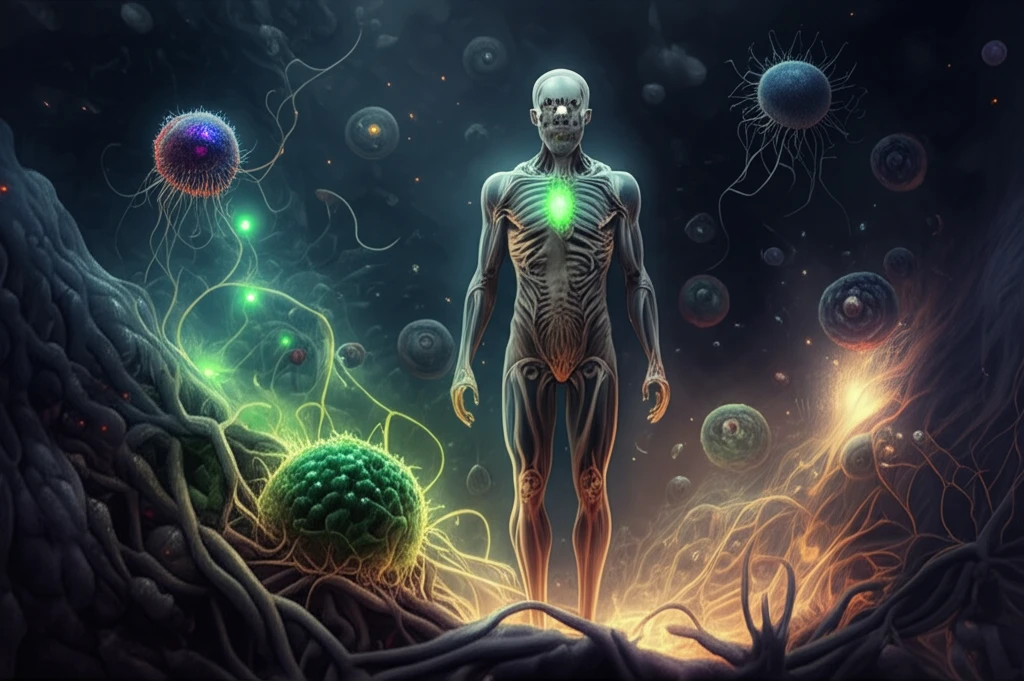
Your Body's Silent Battle: Understanding Cancer as an Immune-Mediated Disease
"Unlock the secrets of how your immune system interacts with cancer, influencing everything from tumor growth to potential treatments."
For decades, the fields of oncology and immunology have been intertwined, driven by the need to develop more effective ways to combat cancer. Traditional treatments like surgery, chemotherapy, and radiation often fall short, failing to eliminate all cancerous cells and sometimes weakening the patient's immune response. This has spurred scientists to investigate how the immune system can be harnessed to fight cancer more effectively.
The immune system's role in cancer is complex and multifaceted. On one hand, cancer can be seen as a result of immune system failure, where malignant cells evade detection and destruction. Chronic infections and inflammation, often linked to weakened immune responses, can also contribute to cancer development. The environment surrounding a tumor further supports cancer cell survival and spread.
On the other hand, the immune system possesses the remarkable ability to recognize and destroy cancerous cells. By understanding how the immune system controls tumor initiation, growth, and progression, researchers hope to develop more targeted and effective cancer immunotherapies that can be used alone or in combination with conventional treatments.
The Immune System's Dual Role in Cancer

The idea that the immune system can recognize and respond to neoplastic cells isn't new. As early as the 19th century, scientists began exploring this concept. William Coley, a surgeon, observed that bacterial infections could sometimes lead to the remission of cancer, suggesting that the immune system could be stimulated to fight the disease. This led to early attempts to use bacteria-derived toxins to treat cancer, with some success.
- Downregulation of antigen processing and presentation by malignant cells.
- Altered expression of certain chemokines and cytokines.
- Induction of apoptosis in immune cells.
- Suppression of immune cell function.
The Future of Cancer Immunotherapy
By unraveling the complex interactions between the immune system and cancer, scientists are paving the way for more effective immunotherapies. These therapies aim to boost the immune system's ability to recognize and destroy cancer cells, overcome immune evasion mechanisms, and create a more favorable tumor microenvironment. As research progresses, the hope is that immunotherapy will become a cornerstone of cancer treatment, offering new hope for patients worldwide.
